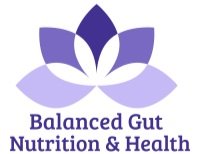Debunking Influencers: How to Spot Misleading Health Advice
It’s time for the influencer blog post. Admittedly, I think this topic has been in the making ever since I started the debunking series, and now it feels like a good time to explore this together.
It’s hard to scroll through social media without running into health advice from influencers - often packaged in quick tips, personal success stories, or sponsored product recommendations. While some of it might sound compelling, much of this information is oversimplified, misleading, or not backed by science. In this post, I’m exploring the role of influencers in shaping health trends, the risks of taking their advice at face value, and how to navigate wellness content online with a more discerning eye.
The Role of Influencers
I think you have a decent understanding of the role of influencers. They’re essentially social media users who have a significant number of followers and use their platform to market various goods and services based on brand partnerships.
If you look up the definition of influencer, you know what descriptor you don’t find? Expert.
Just because someone has a large platform, a large following, perfect lighting, and a great success story does not mean they’re an expert or qualified…nor does it mean that whatever they’re “selling” is right/a good fit for you.
Is every influencer unqualified? No. Is some of the information valid? My guess is, probably. (Remember, I have no social media, so I only learn of this from others’ inquiries!) Can an influencer potentially push harmless misinformation? Sure, aside from the dent in your wallet.
As I’ve said in previous newsletters, I don’t like sweeping generalizations and that is no different here. I don’t think all influencers lack credibility and expertise, nor do I think any are in it to intentionally cause harm.
But at the same time, many do cause (unintentional) harm by pushing nutritional advice/suggestions that they are quite frankly not qualified to be giving…and that is what I take issue with and what gives me the most concern. That’s not just my opinion either.
Interestingly, this study, conducted by an Australian team of clinical nutritionists and researchers, evaluated 676 Instagram influencer posts for quality and 510 posts for accuracy, over 47 Australian Instagram accounts in total. Their findings?
94% of posts were of poor or mediocre quality, and ~45% had inaccuracies. That gives me pause. How about you?
So how do you fine-tune your own spidey senses when looking at nutrition advice from influencers? I have some suggestions.
6 Questions to Ask When Considering Influencer Advice 🧐
1. Do they have the proper credentials to give out nutrition advice?
Having an interest in health and wellness doesn’t make someone a nutrition expert. Some of the nutrition credentials I’m looking for here in the States are:
RD(N): Registered Dietitian (Nutritionist)
LDN: Licensed Dietitian Nutritionist
CNS or CCN: Certified Nutrition Specialist or Certified Clinical Nutritionist
ND: Naturopathic Doctor (note: a “naturopath” - without the doctorate - is more like a health coach, not a nutrition specialist)
Master’s, Doctorate, or PhD in the nutrition field
IFMCP - Institute of Functional Medicine Certified Practitioner
If the influencer does not hold any of these credentials, you should investigate further.
2. Is this advice based on personal experience?
Personal anecdotes, such as an influencer claiming weight loss from a specific diet or “curing” their autoimmune condition from cutting out sugar…if these claims are in fact valid (oftentimes you’re not getting the full story)...that has no bearing on whether that will work for you. And if that did work for an influencer, great, love that for them - I would never want to take away from someone’s personal experience. Here’s the thing:
Influencers are really good at storytelling and we all love a good story with a happy ending…but one person’s happy ending doesn’t inherently guarantee your happy ending too.
Remember, you’re seeing - quite literally - seconds or a few minutes of a highly curated story intended to sell you something. These stories may be powerful, but they’re not the whole picture; they rarely address any risks, and they’re not a substitute for personalized care. There’s no one-size-fits-all approach to nutrition because there’s no one-size-fits-all body.
3. Are their claims backed by credible research?
Don’t worry, you don’t have to have a research degree to tell if a study is credible.
Was it conducted in humans?
Is it independently done? Meaning not conducted by the company selling the product
Does it have a decent number of participants? (100+ is nice)
If an influencer doesn't provide research links or references somewhere on their website or social media (i.e., you can’t find the above information for whatever they’re selling), it's a red flag.
4. Are they being paid to promote this product/diet/supplement that will somehow improve your health?
Are there affiliate links? Many influencers are paid to convince you you need what they’re selling - including some who have undisclosed financial ties. That doesn’t always mean the information is “bad,” but it does mean you should perhaps think twice and be critical.
Equally as important…does supporting their pocketbook (by investing in their product) fit your pocketbook? Much of this advice requires you to invest a pretty penny to get the glamorous health benefits they’re hyping.
5. Are they using fear-mongering, dramatic claims, or promoting one “right” way of eating?
Run in the other direction from influencers who claim their diet/supplement/ advice “cures” or “prevents” anything. The same holds for those who claim certain foods or ways of eating are “toxic”...but their one specific way of eating is the holy grail.
Absolutes, moralizing, and/or creating shame around food choices, and/or recommending restrictive diets or one “right” way of eating (oftentimes eliminating entire food groups) is the antithesis of creating healthy behaviors towards food and your body.
6. Are they promising “Eat/Supplement/Workout like me…to look/feel like me” advice?
If an influencer is promising that you’ll “look or feel like” them by eating, supplementing, or working out like they do - please pause. That message is harmful; it suggests your body needs fixing, and that if you’re not “healthy,” it’s your fault.
Here’s the truth…many influencers reflect unrealistic, narrow beauty ideals, rooted in a white, thin, able-bodied version of “health,” often with help from filters, lighting, and editing.
When their advice doesn’t “work” for you, it can lead to self-blame and shame…even though their promises were never realistic to begin with. Even if you ate the same food and did the same workouts, you’d still have different bodies. That’s not failure, that’s being human.
The Bottom Line
Influence ≠ Expertise. A large following does not equate to credible knowledge, confidence does not equate to correctness, and a good story does not equate to good advice.
Following health advice from an influencer is like letting a stranger on the street diagnose and treat your medical condition without knowing your history, symptoms, or needs. Would you trust that stranger’s advice?
It's totally normal to be curious about something you saw online, but before adopting it into your daily routine, give yourself permission to slow down and seek out guidance that honors you. Your body isn’t a trend…it’s worthy of care that’s thoughtful, evidence-based, and personal. 💜

